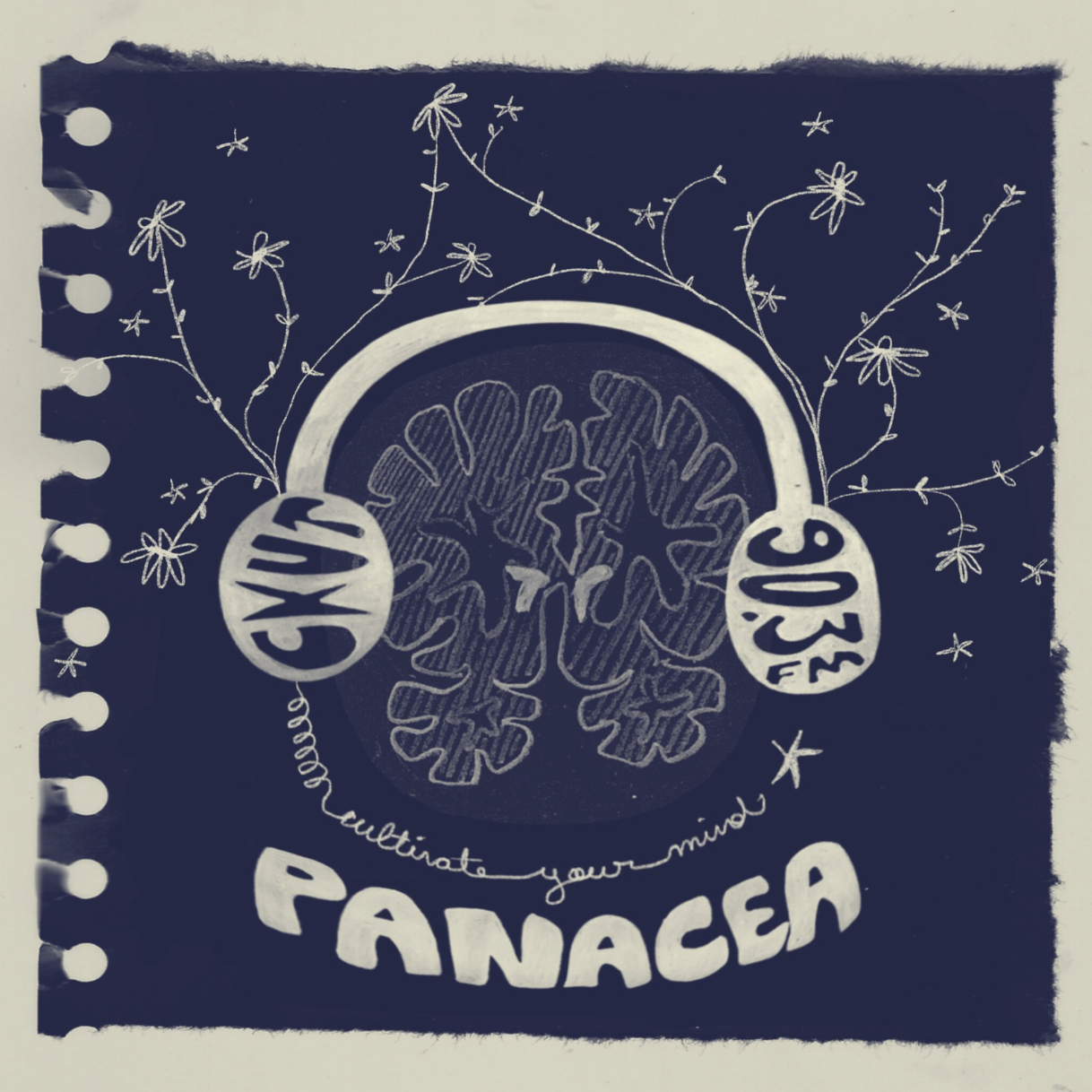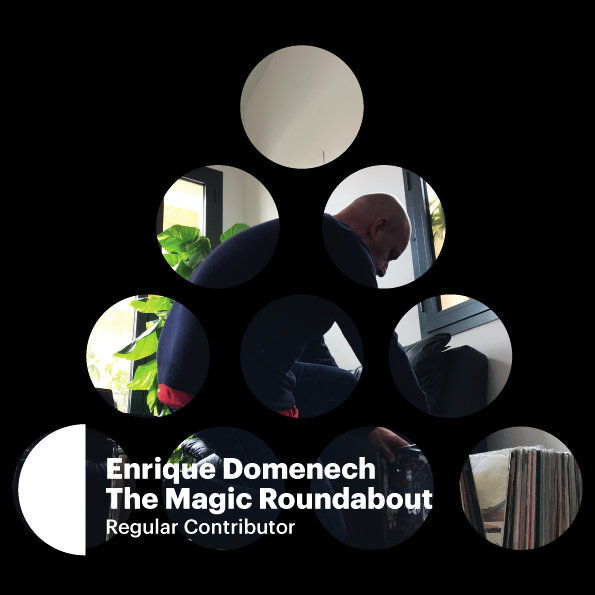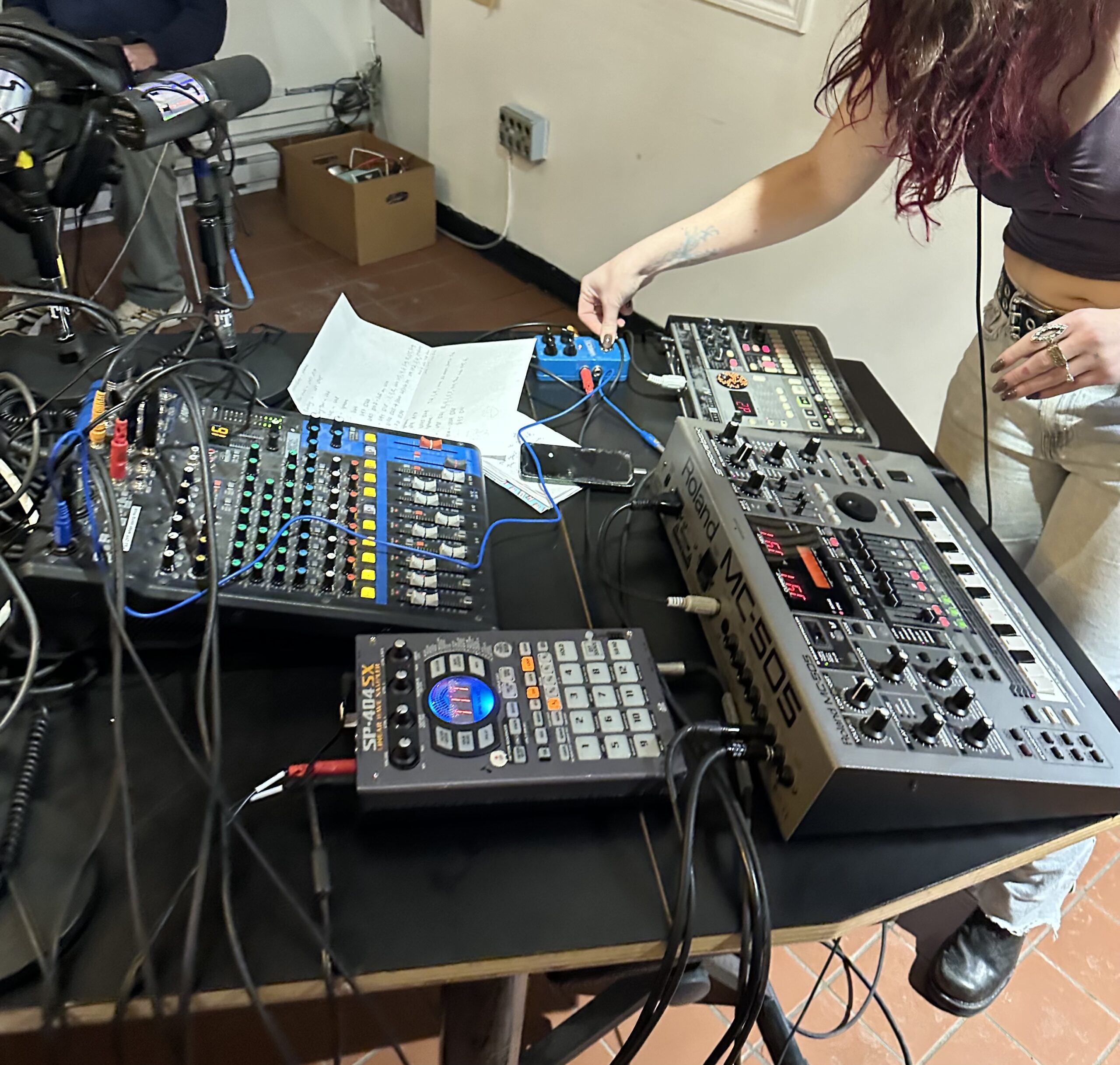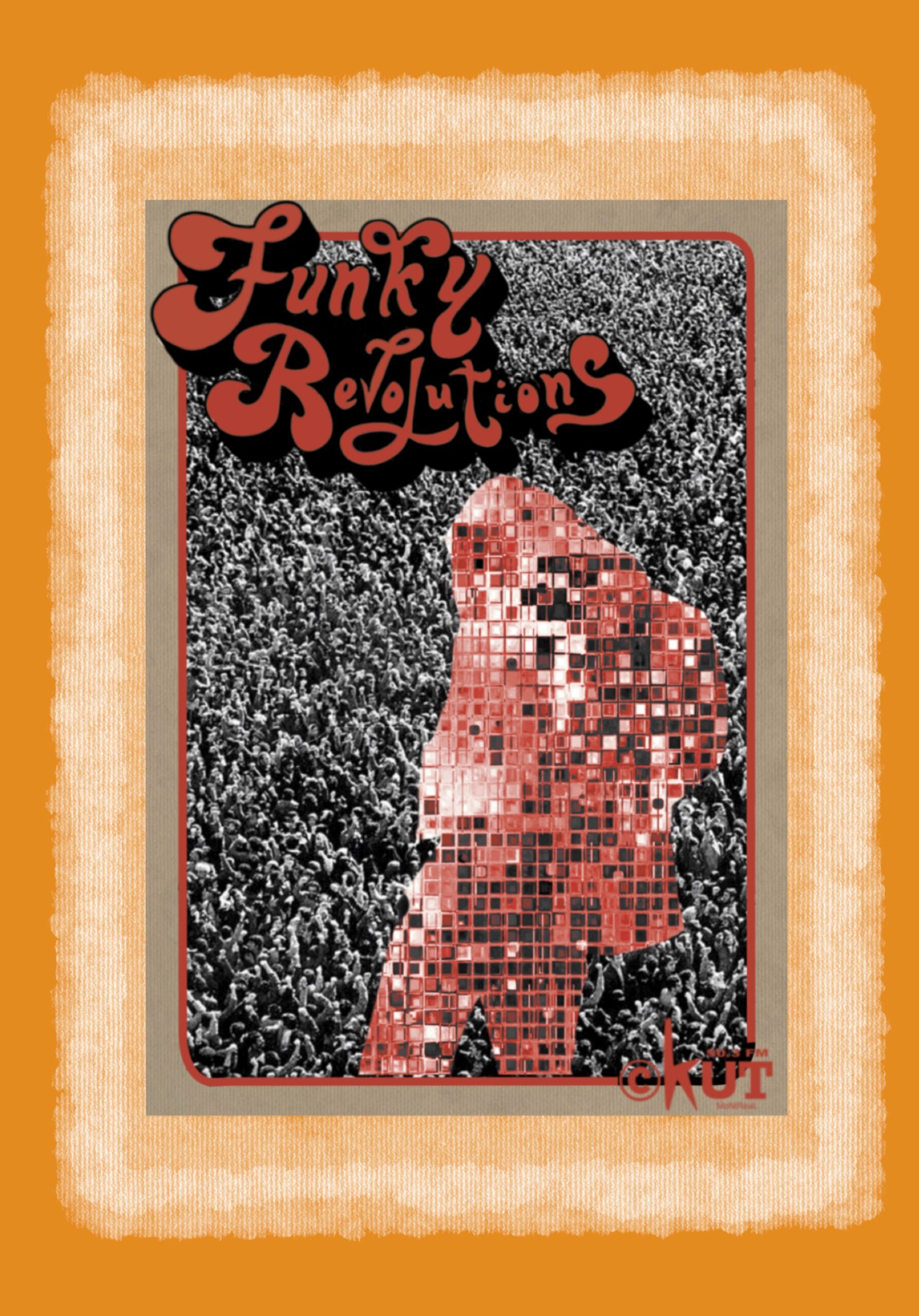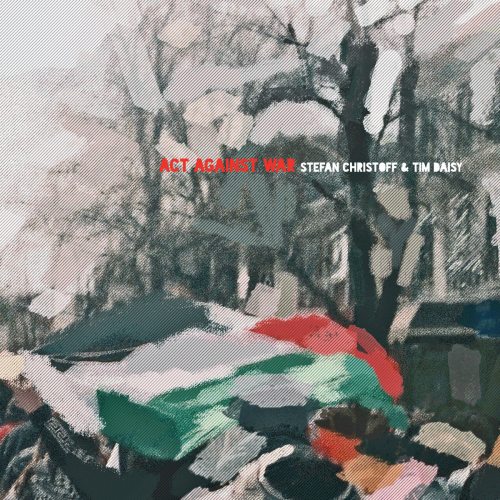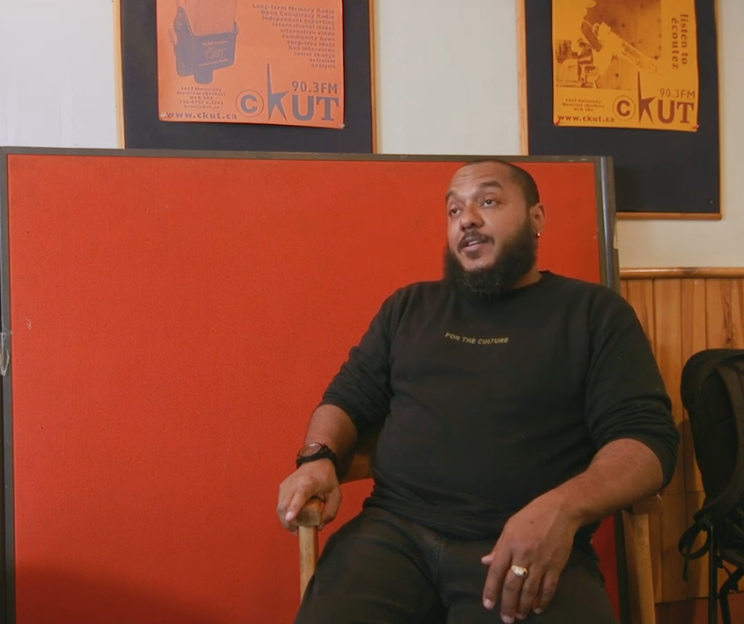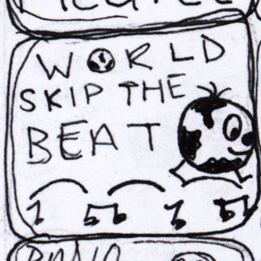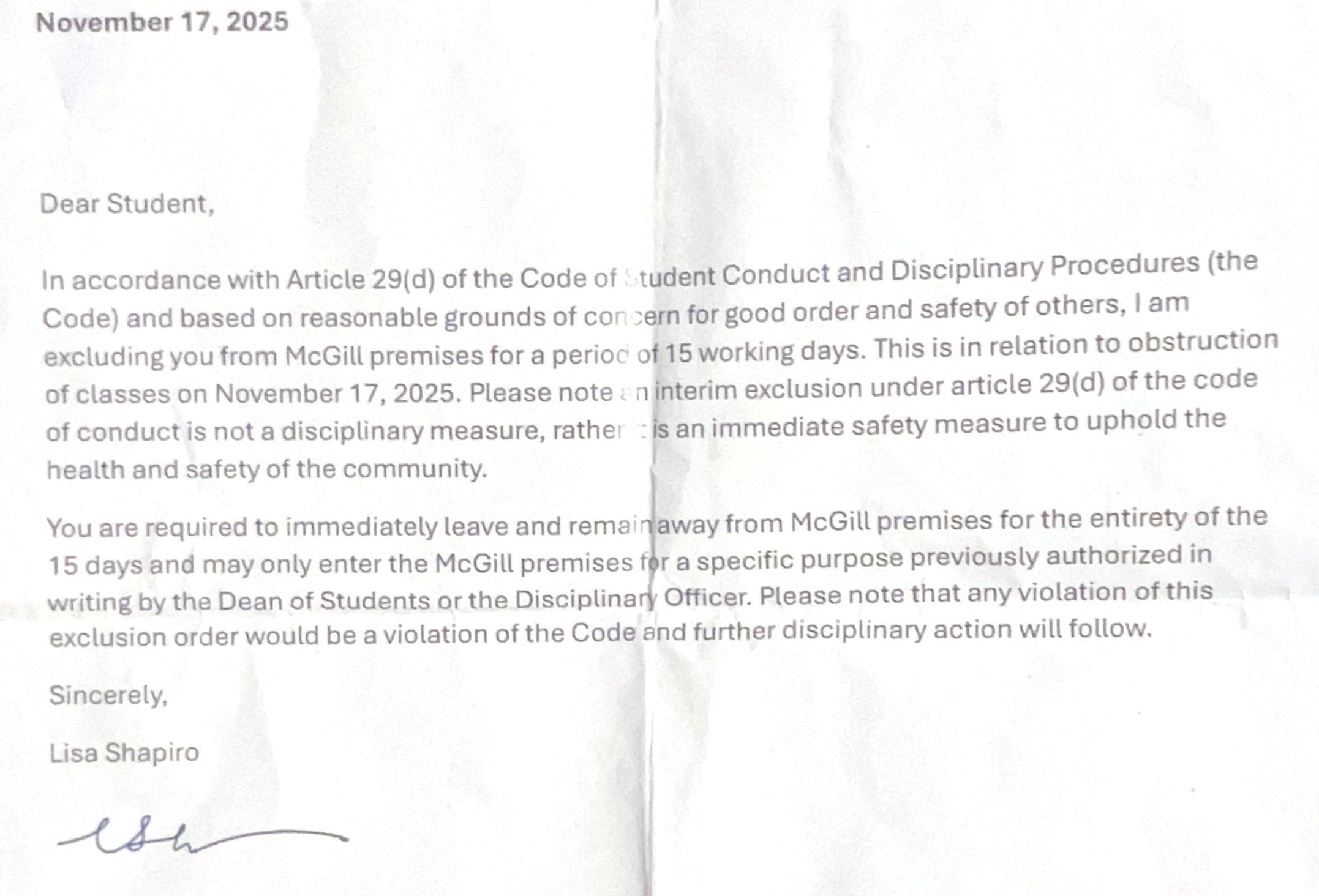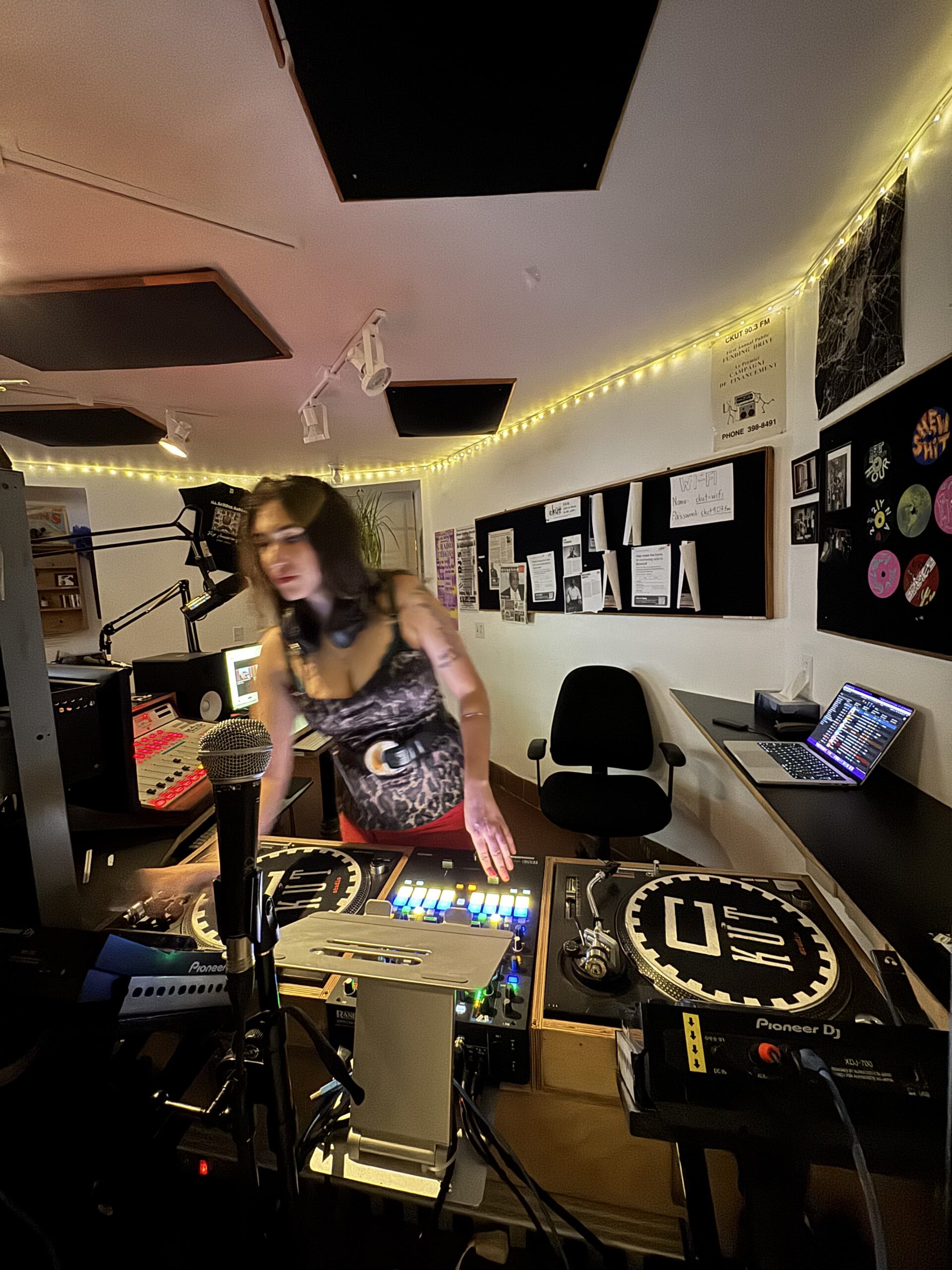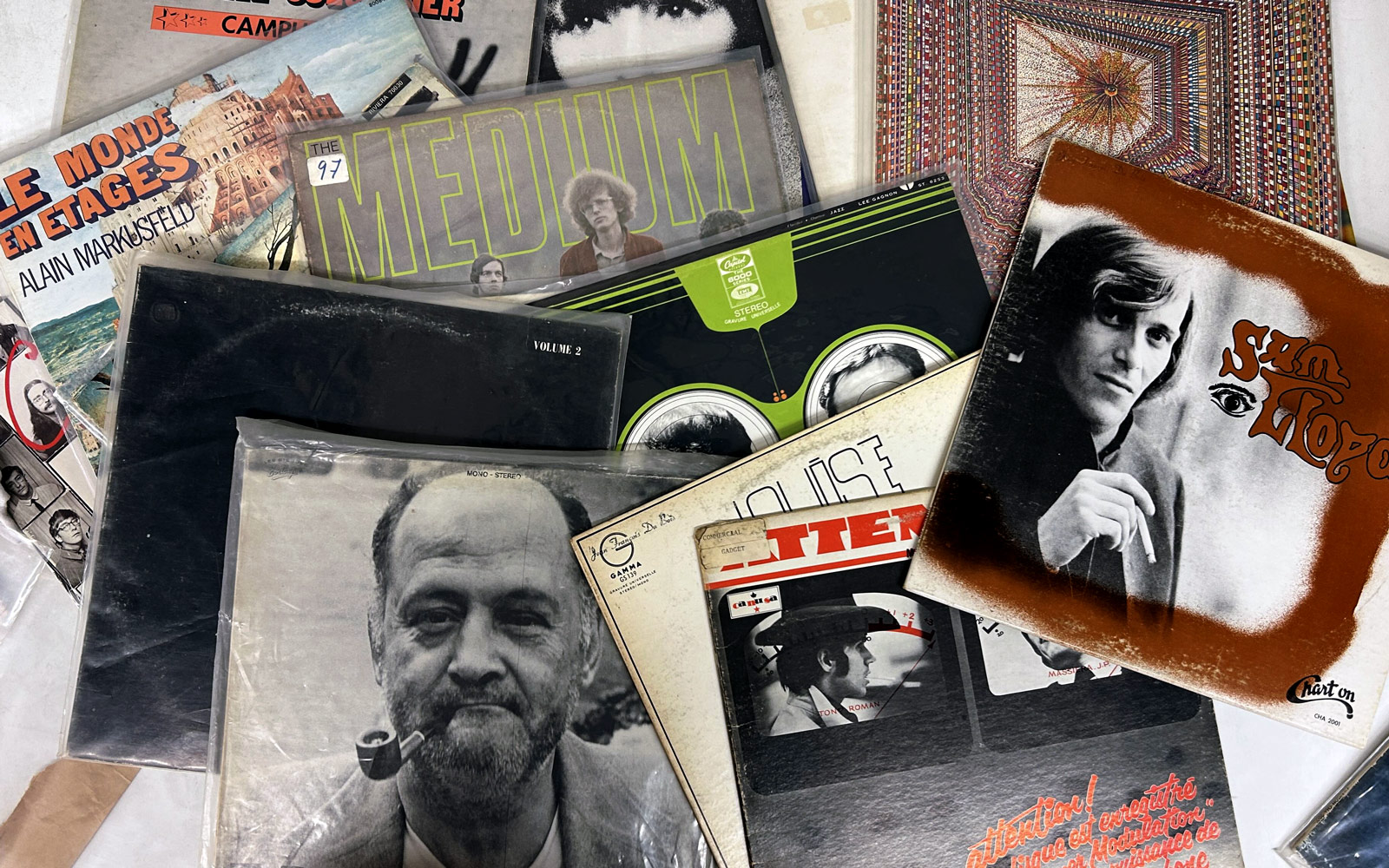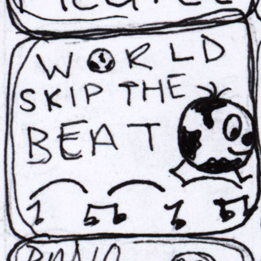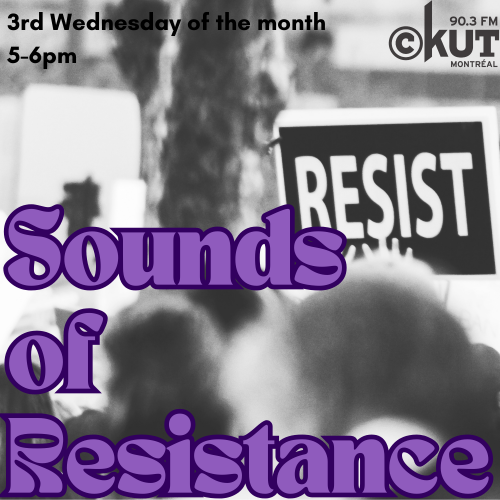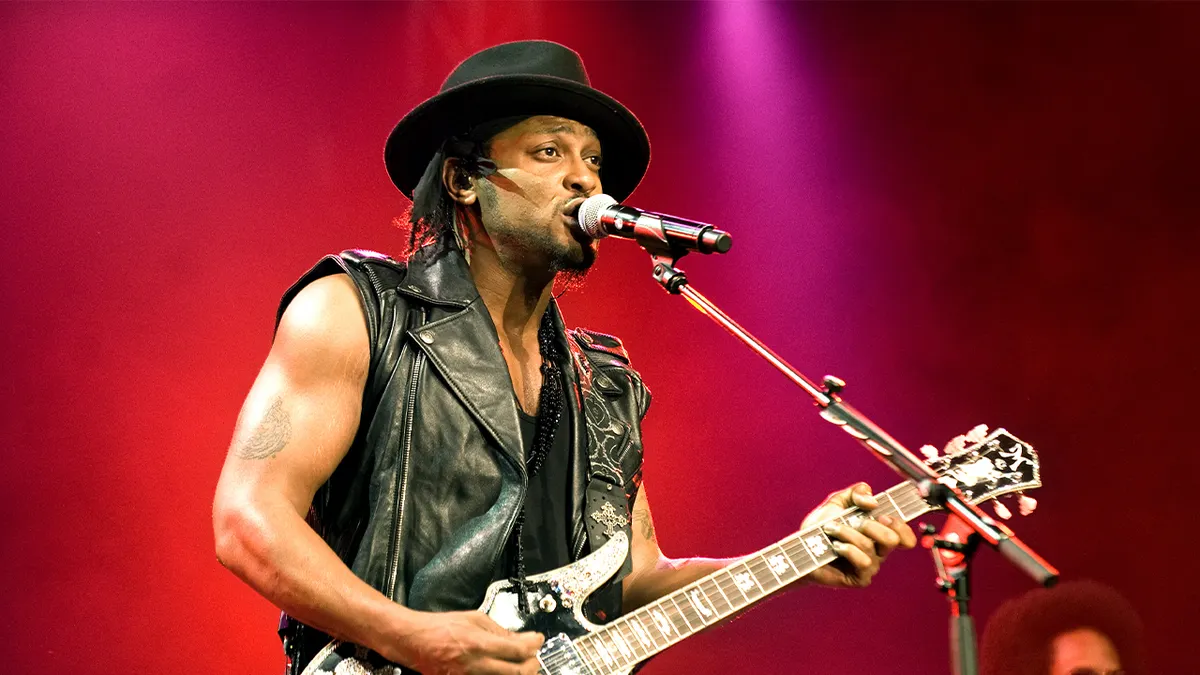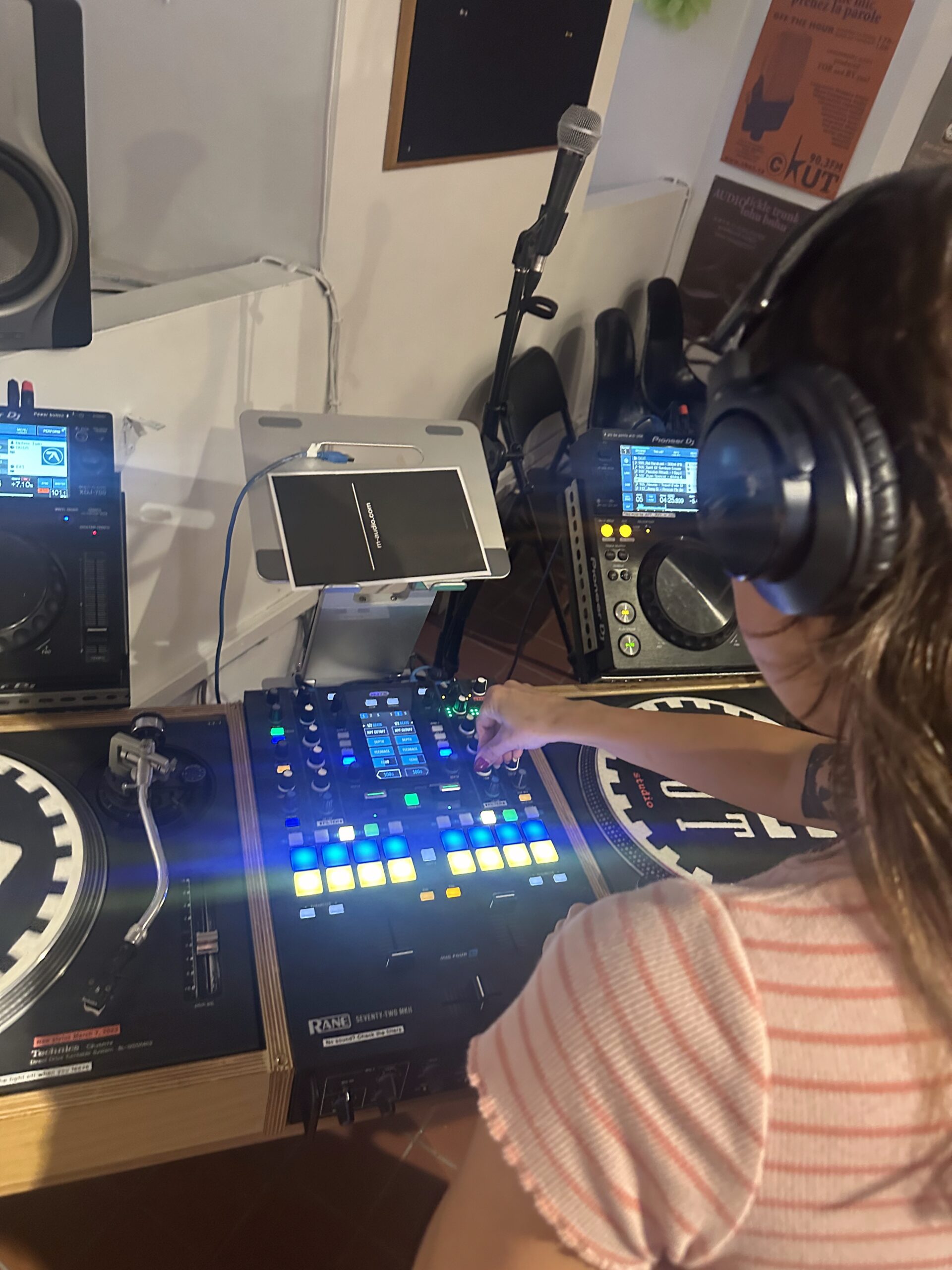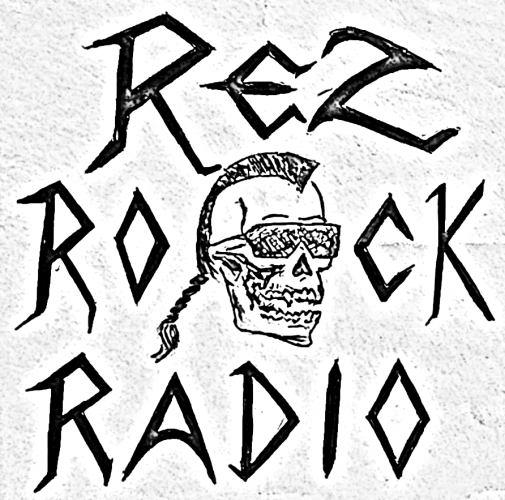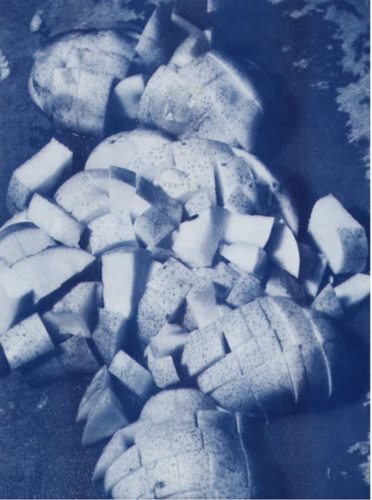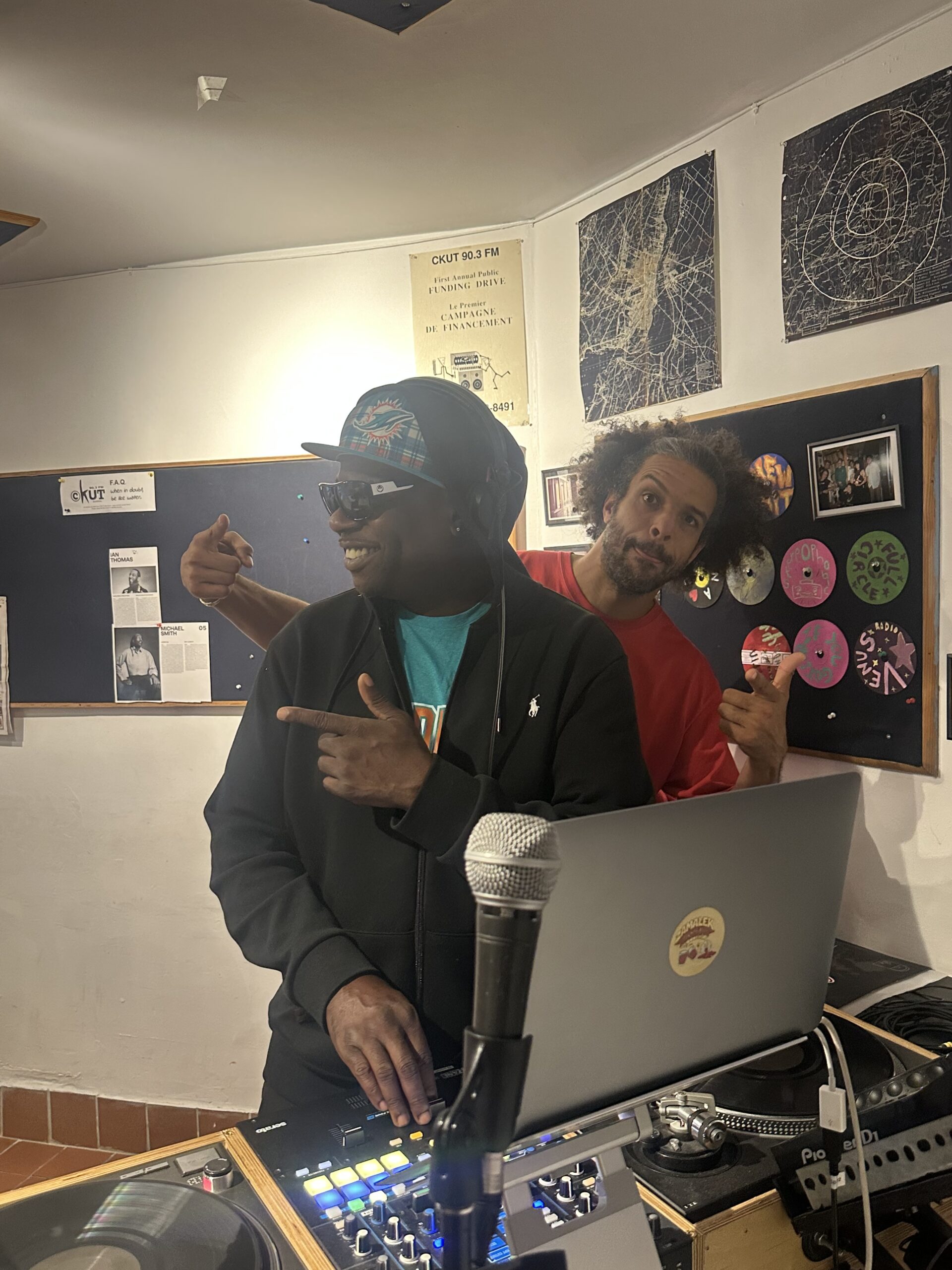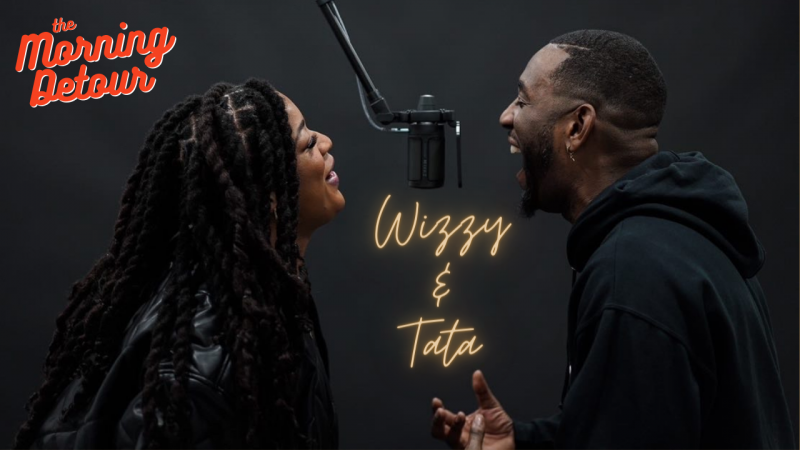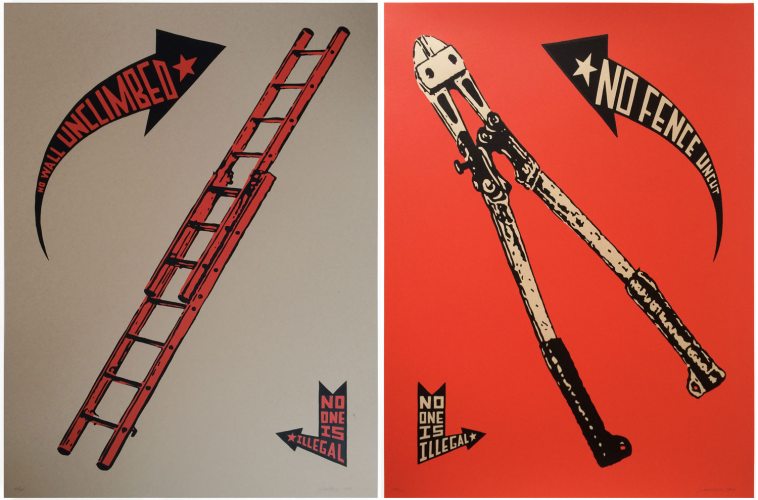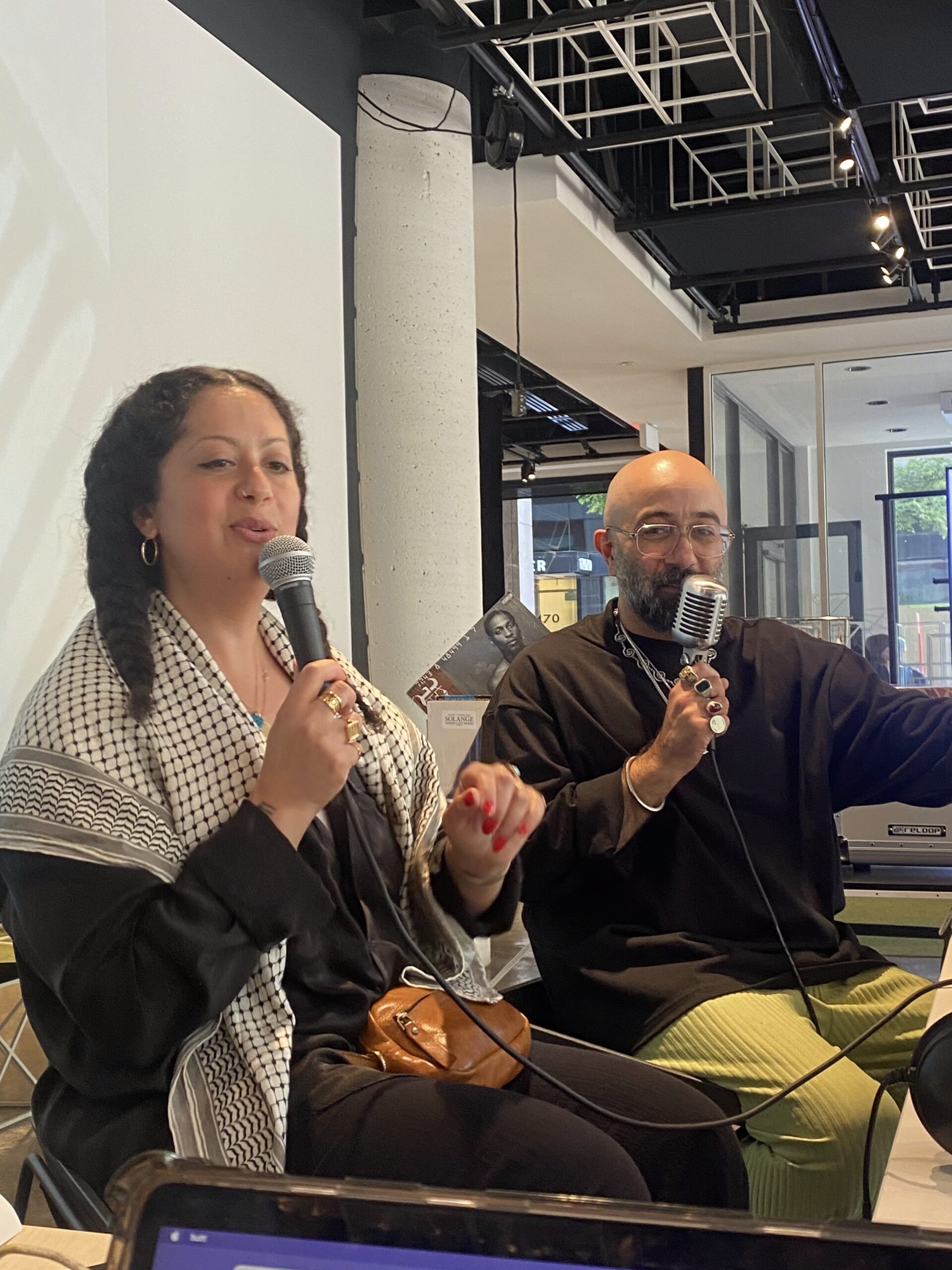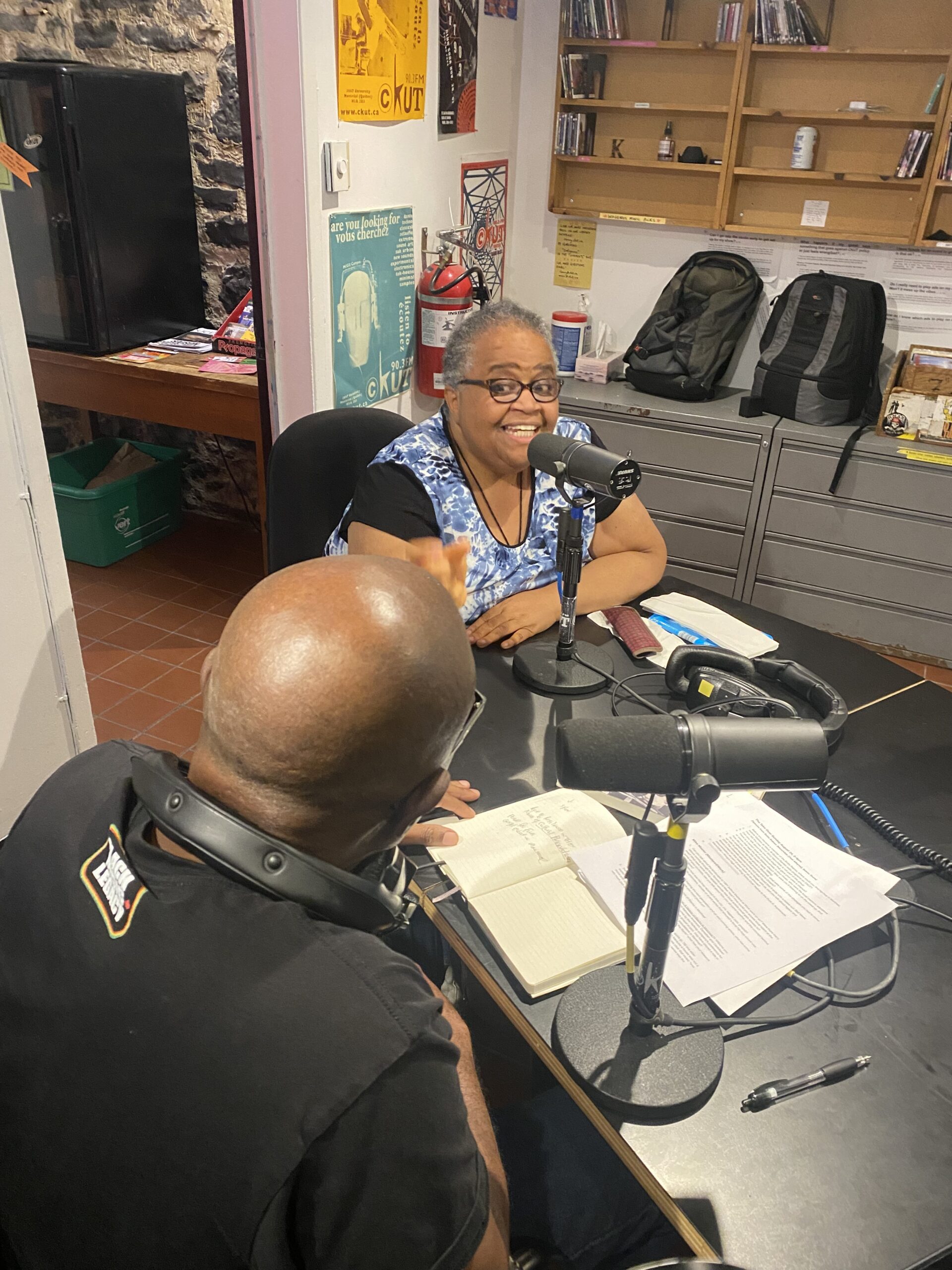Interview with Colin Newman of Wire
Vince Tinguely, hosted the radio show "This Show is History" back in 1987-88. Here is his recollection of the interview:
"One of the staff members of CKUT FM asked me if I was interested in interviewing Wire, and I happily accepted the opportunity to see the band for free. The interview took place in the dressing room of Club Soda, then located on Parc Avenue near Fairmont (in Montreal).
The batteries for CKUT’s Marantz tape recorder had run down, so it was necessary to find an electrical outlet. Oddly enough, the only plug to be found was in one of the little make-up booths, complete with mirror surrounded by lightbulbs, that Club Soda provided for its performers. Colin Newman and I crammed ourselves into this booth, and the recording begins with sounds of me getting myself set up. Colin is making himself available while the rest of the band goes through a sound check onstage.
As the interview begins, someone can be heard reciting nonsense syllables for the mic check. The noise from the sound check (drums, bass, guitar) permeates the recording throughout the thirty minute interview, until Newman has to leave to do his part."
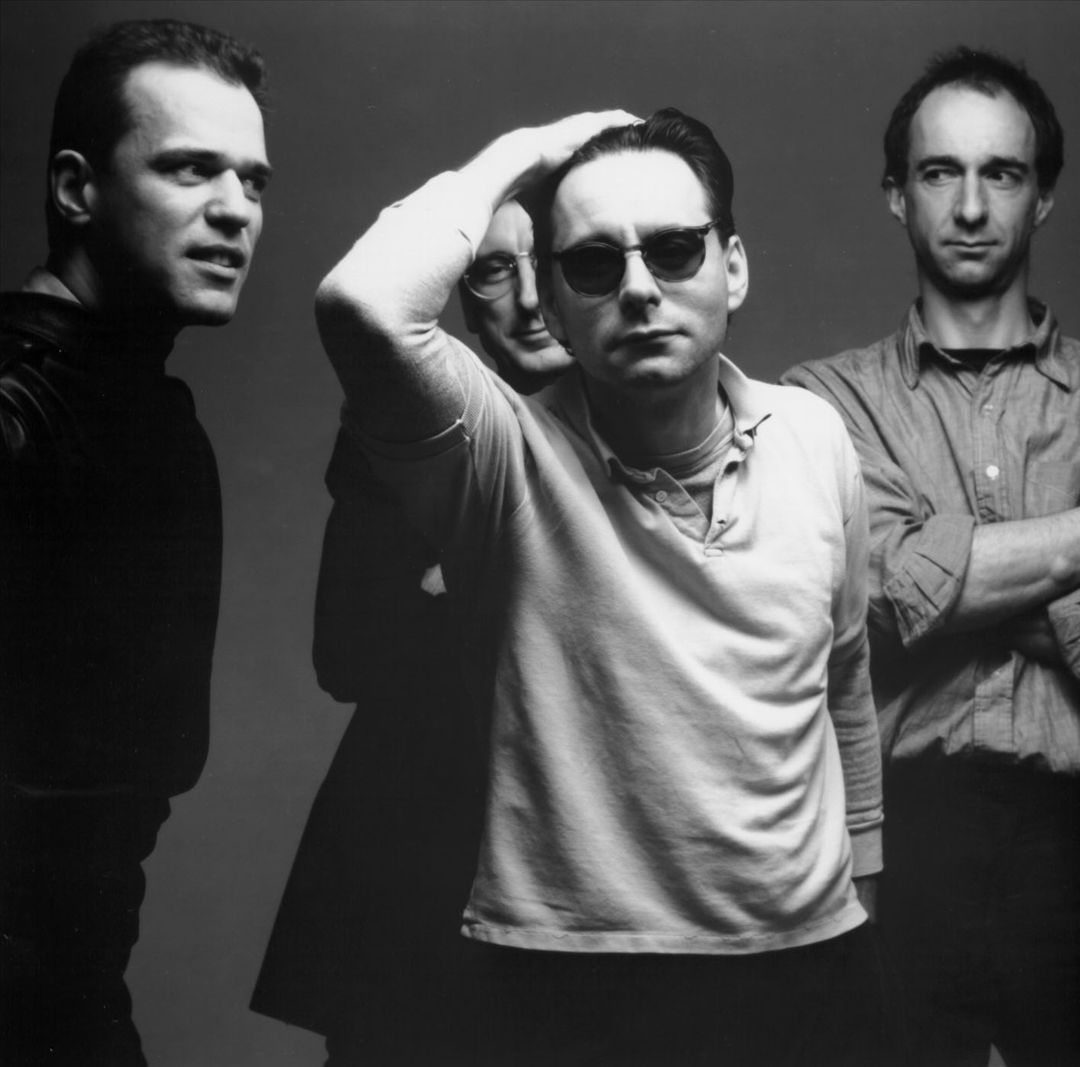
Edited TRANSCRIPT OF INTERVIEW WITH COLIN NEWMAN OF WIRE
Club Soda, June 29, 1988
Vince Tinguely: Where are you based?
Colin Newman: I live in Brussels.
V.T.: Why’s that?
C.N.: A combination of reasons, both personal and to do with work. The rest of the group are nomadic. They’re all currently living in London, but – well, they’re staying in London, that would be more truthful … they may not all stay in London. I think Graham maybe has a plan to move to Barcelona later this year.
V.T.: Brussels. There’s a lot going on in Brussels. Front 242 is from Brussels.
C.N.: Sure.
V.T.: Bands from Montreal record in Brussels. Bands from New York record in Brussels, even.
C.N.: Yeah, studio time is quite cheap in Brussels.
V.T.: I see. It’s got an interesting language situation there too.
C.N.: Well, divided between French and Flemish.
V.T.: Yeah … and most people speak some English too? At least among the younger people?
C.N.: They don’t have such a high percentage of people speaking English as they do say in Holland. For most transactional usage I use French, in the city. It’s easier. The Belgians tend to speak better English than the French do. But for work, I’m mainly speaking in English.
V.T.: So it’d be a mistake to say Wire is a British band. Wire is a European band.
C.N.: I think you’d have to ask the others, but I think there is some European element in what we do, yeah.
V.T.: You speak French and English and …
C.N.: I speak French after a fashion.
V.T.: I speak French without any fashion … [we laugh]
C.N.: I just had a conversation with the guy who was delivering the drinks and I hardly understood a word that he said because the accent was so heavy.
V.T.: Oh yeah … it’s quite different here. You know, the French in Quebec’s been isolated in a way from France’s language for three hundred years or so, so it’s become it’s own sort of sound for sure.
C.N.: Yeah.
V.T.: How do you find this tour? Is it different from the first one? The ‘come-back’ tour as they say?[1]
C.N.: The ‘come-back’ tour …
V.T.: The Return of Wire.
C.N.: The come-back tour was, um … wasn’t really a come-back but I don’t really want to go into that. I mean it was the first time that Wire had ever played in America, really.
V.T.: Oh yeah? …
C.N.: I mean, it – it was very problematic in that there was a high level of expectation among certain people. And I think it would’ve been almost impossible for us in certain cases to fulfill that expectation. I think this feels more like the first tour, it feels more like a kind of ‘start’. We’re much more down to paydirt, I think. Seeing, quite, who is interested and who’s not interested, where we have an audience and where we don’t have an audience in North America.
V.T.: You’ve played from Minneapolis, this tour?
C.N.: No, we actually started the tour in Hoboken, New Jersey, which is just outside New York. We played there because there’s a very friendly little club called Maxwell’s there. We wanted to just kind of break in the crew and break in ourselves and do it kind of gently before we went on to do the tour. Which is what we didn’t do last year, and I think it was a very good idea to do it this year. And then moved down to San Francisco, that was the first show we did. We played the Fillmore there. Then we moved on to Los Angeles, where we did a short tour of Los Angeles. Three gigs of varying sizes, the first one of which was opening for Depeche Mode at the Rose Bowl.
V.T.: Oh dear, that must’ve been very strange.
C.N.: It was pretty weird.
V.T.: Are you used to opening for large … large …
C.N.: No, never done anything like that before.
V.T.: Yeah.
C.N.: We were asked to do the tour, but we found it wasn’t appropriate.
V.T.: Yeah.
C.N.: But it was a kind of special gig, and they wanted us to do it very much, so we said we would. And it was a big bill, it was them, OMD, Thomas Dolby and us. I mean, we were very much the last name on the bill. Still, we managed to play to more people than we’d every played to in one time before. Although the audience was still coming in, it wasn’t exactly all the people that Depeche Mode played to. It was kind of interesting, it was a kind of test, really, to see if we could do it or not.
V.T.: Did you feel any sort of a different atmosphere when you did that, as far as audience … relating to you?
C.N.: The audience were very far away! I mean it was a bit like playing to less people than we normally play to.
V.T.: Yeah!
C.N.: That was the thing. Um … and then we did a couple more. What happened was, the guy who promoted this gig had said that he didn’t want any of the other groups on the bill to play their own headline gigs in Los Angeles in that period. I guess that was mainly addressed to OMD, whose album is breaking very fast, I think, in North America. They could have taken a substantial audience with them, I guess, if they’d gone for their own show somewhere in the area. But I guess if you say it about one you have to say it about everyone. So we put in a couple of unannounced dates in L.A. because we wanted to play to – you know, there are a considerable number of Wire fans in Los Angeles, and I think they would have been ‘bout pissed off if the only chance they had to see us was in a huge stadium.
V.T.: Yeah … [Graham Lewis enters the dressing room.]
C.N.: Come sit down, Graham.
Graham Lewis: What? [Graham is rummaging around]
C.N.: We’re in the confession booth.
G.L.: I can see!
C.N.: It’s the only place where there’s electricity.
G.L.: Have you given in? [I laugh] Have you come clean?
C.N.: Yeah, I’m ‘fessing up!
G.L.: Two Hail Mary’s and an Our Father!
C.N.: And then we went on to Minneapolis and have come through the midwest of America.
G.L.: And met the Band of Susans! [G.L. then exits the dressing room.]
C.N.: And met the Band of Susans in Minneapolis, as Graham said, and then progressed north to Toronto, eastwards to Montreal, and then we will proceed southeast in the direction of Boston, then south, then back to Europe.
V.T.: Now, that’s a kind of a flashcard kind of an experience of North America for you.
C.N.: I think all tours are. Of anywhere.
V.T.: Do you get a sense of a difference in attitude, say, between what’s going on on the West Coast and L.A. and what’s going on over on the East Coast?
C.N.: Well, I know that there are great divisions within North America. Within the U.S.A. and between America and Canada. Each place is a different place. It’s very difficult to see the U.S.A. as one country, and Canada also. We’ve been to three places in Canada now, because last year we played in Vancouver also. I think the differences between Vancouver, Montreal and Toronto, I mean, they could be in three different countries.
V.T.: I agree with that. It’s very different from one place to the next.
C.N.: Vancouver is entirely different than Los Angeles, and they’re both on the West coast of the continent of North America.
V.T.: I guess it just depends on whatever political forces are … you know –
C.N.: Well, it’s partly to do with that. I mean, there is something tying it all together. There is the land mass. The feeling of the land mass. It’s quite a big land mass. It’s not as big a land mass as the land mass of Eurasia, as the geographers call it, but it has fewer political divisions on it. It only comprises three countries, North America, as opposed to Eurasia, which comprises probably about sixty countries or so … I’m not sure exactly how many.
V.T.: I tend to think in terms of cities, more than states or provinces …
C.N.: But I think that the cities are the least interesting aspect of North America. I mean the sheer, the land mass is what’s interesting about it.
V.T.: I guess in Europe it’s much more of a developed land … humanity has touched everything.
C.N.: Yeah. There’s wild bits but not so much. I mean where I live is one of the most densely populated areas of the world.
V.T.: What do you think of the E.E.C.[2] idea? Do you think that’s a good thing?
C.N.: I think I’m actually quite proud of it. I live in the capital of Europe, and I think that the E.E.C. is a good thing for the reason that anything that is going to open up borders anywhere is a good thing. Whether they can pull it off or not … nations in Europe don’t particularly love each other. Shall we say. It’s got for the most part very little to do with what happened in the last war. It’s more to do with day-to-day things. And yet there’s so much movement back and forth across the continental land mass. There’s a fascinating thing about the autobahns in Germany, you’ll see these cars and lorries from any country you can think of. I mean, it’s not unusual to see lorries from, say, Turkey, sometimes you even see them from places like Pakistan. The movement of goods and people up and down these autobahns … I guess some of these trade routes have always existed across the continent, for thousands of years.
V.T.: As a band, how much time do you spend being a band, and how much time do you work on your own projects?
C.N.: I guess we do what’s necessary, in either sphere.
V.T.: Is it sort of an economic necessity?
C.N.: What’s necessary in order to make it make sense. I mean, for a start there’s no point in making a record if you can’t do something to help sell it. So therefore, touring becomes a bit of a necessity, a) to promote records, b) to provide some kind of living for the people. So you have to visit certain places. We play, currently, North America and Europe. We’re about to play in Japan for the third time […] Then there’s recording. And touring is something which doesn’t just exist for Wire. I’ve started to tour. I did my first post-1985[3] tour in Europe earlier this year, and intend to do something in North America early next year. Graham will definitely tour, again, probably in the same period. And so the whole thing – I mean, everything is on a different level. If you’re going to sell records, you have to be visible. So you do have to go to various places, and not only that, you have to write and make the music and record it, so it all takes up quite a lot of time.
V.T.: How does the composition work for Wire? I’m just curious about how the music comes together, and the words.
C.N.: The lyrics are mainly written by Graham and Bruce. What I mainly write is the vocal melodies and some kind of chord schemata or half-arrangement. With Wire I like to keep it to the point where I don’t write complete arrangements, because I don’t think anyone would like that very much. But I guess probably eighty per cent of A Bell is a Cup … the basis was either developed by me at home or in the studio. Some things were done like, say somebody would providing a rhythm – very often Bruce. Then I’d put the chord scheme on top of it.
V.T.: Vocal melody, that’s an interesting idea.
C.N.: I always have the lyric in front of me when I’m working it out.
V.T.: And then you arrange it according to –
C.N.: Yeah. I get it to work.
V.T.: And you’re still basically a drums-and-guitar oriented band?
C.N.: Um … yes. I mean, I don’t think that the technology employed is necessarily very obvious with Wire, but we do actually use quite a lot of heavy sequencing on the record.
V.T.: What I noticed, for the concert that I saw last year, was that the sound was unique, in a way, because of that. You’re using stringed instruments but the sound itself is being processed or manipulated.
C.N.: I’m thinking more about recording. Live it’s a matter of keeping it very simple, and using these trimmings to make it sound interesting. But in the recording studio it’s a combination of sequencer technology and live playing, really to taste.
V.T.: I’m going to embarass myself, but I haven’t heard A Bell is a Cup … yet. I’ve heard ‘Kidney Bingos’, and I noticed it’s quite pop, I must say. Like, it shimmers, the music. Is that consciously pop, or is that just a progression? I mean when you first started, some of the songs were based on one chord.
C.N.: Yeah, but there’s always been a very strong pop element in Wire. In a thing like ‘Kidney Bingos’ … there’s a kind of rhythm. Bruce had a guitar rhythm, and we’d been playing it more or less like that for a year or so. It was just kind of a ‘da-dur-da-dur-da-dur’ … and not so much in the way of a tune. We were going to record it like that, and I started playing a set of guitar chords over the top of it and suddenly it transformed into a pop song. It seemed almost a piece of pastiche, and quite funny, but we decided it sounded quite good, so we just went for it, basically. The history of Wire is peppered with songs which had been regarded as being extremely pop, at the time. In retrospect, maybe they don’t sound that way, because people are always redefining what is pop and what isn’t pop. I think you’ll find the album – ‘Kidney Bingos’ is the most obvious pop song on the album, but it is I think a lot more harmonically cogent than The Ideal Copy.
V.T.: Thinking in terms of The Ideal Copy, where do these lyrics come from? Is it a conscious thought process, or is it one of these ‘inspirational ’ sort of –
C.N.: You’d have to ask Graham and Bruce about their lyrics. I know they both carry notebooks, and that most of the lyrics are quite multilayered.
V.T.: I’m curious about ideas. When you develop a new idea for your band, when your band comes up with – like, to me, ideas are built on other ideas, usually, or incorporate some part of another idea into their structure. I don’t think anyone just comes up with an idea out of nowhere.
C.N.: [amused] Where do ideas come from?
V.T.: Well, ideas come from … ah …
C.N.: The Great Chocolate Bunny in the Sky. [I chuckle.] Dame Fortune. For me, most musical ideas that I have start from some kind of pastiche. Then I harmonically subvert them to the point in which they’re not pastiche any more.
V.T.: So you’re not going out and listening to some other music and going, “Ah, there’s an idea …” ?
C.N.: Not personally. Personally I think approaching music like that is a very very bad idea. I think there’s a mix of all kinds of stuff in your head, you kind of come out with various things … it’s difficult to really say where it all comes from, but I can tell when something is a kind of pastiche even if no-one else can hear it. And then I will eliminate the pastiche elements by harmonic subversion.
V.T.: What’s ‘harmonic subversion’?
C.N.: You take a certain scheme of chords which may remind you of a certain thing, and then you insert another line against it, which creates a certain kind of harmonic tension which detracts from that particular thing that the chords were giving – takes out that element.
V.T.: The element of familiarity is there, but there is another element that is playing off and against that at the same time.
C.N.: Absolutely.
V.T.: How do you feel about other bands … for instance, you’ve got Depeche Mode, you’ve got Thomas Dolby and OMD, right? None of them get much play on the radio station I’m at.[4] Wire would get more. So …
C.N.: Why is that?
V.T.: Because Wire is … I guess it’s because Wire, like you say, you’re playing with ideas. You’re more interested in that than you are in pleasing your audience.
C.N.: But then at the same time do you think you could hear ‘Kidney Bingos’ on Top 40 radio?
V.T.: Yes. Yes. Actually I don’t know, I don’t listen to much Top 40. To me, it’s got hooks, it’s an appealing sound. Yeah, it could, sure.
C.N.: I think the thing that marks Wire apart from those other independent-type groups … there’s no conscious idea to have an ‘independent’ or ‘underground’ kind of sound. We’re really trying to have – it’s very specific, the music. It’s not buried under a wash of noise or something like that, that isn’t the idea. I guess to really understand what I mean you’d have to hear the new record, which is much more pointed than the previous record was, as far as I’m concerned. It’s much more a Wire artifact, as well.
V.T.: Yeah, I’ll certainly be listening to it.
C.N.: There are a lot of things I’ve said that will make a lot more sense in the context of that record than it would in the context of The Ideal Copy, which was much more a ‘work in progress’.
V.T.: You’re not worried at all … I mean, what happens if ‘Kidney Bingos’ hits the number one charts, and all of a sudden you’re playing giant – would you want to do that?
C.N.: It’s a situation we’d have to deal with, if we had to deal with it. It’s not a matter of whether you want it or whether you don’t want it. You put something into the marketplace, if the people like it and they buy it, then what can you tell them? Can you turn around and say, “Well, we didn’t do it for you to like it”? [I laugh.] I mean, that’s a double take. You have to deal with the situation when you arrive at it. I’m sure that, say, David Bowie doesn’t like to have to play to huge stadiums full of people. But if he played a small club like this, then all the people that didn’t get in would be very pissed off.
V.T.: Yeah. Yeah.
C.N.: So he would be alienating the people who bought the records and like his music and put money into his pockets. So one has to find an intelligent solution. That may not be the intelligent way to do it, the way that one would normally do those things may not be the way in which Wire would do that. We would have to find a way of doing it, if we had to cope with it. I’m not saying we would have to. From past experience, up to this point it’s been that we don’t have to cope with it. But, um … this is a strange world.
V.T.: Okay. Bowie is a ‘world class’ – ‘world’ in the sense of the Tarot card or whatever – ‘world class’ performer. But it seems to me he performs for the audience, whereas other bands perform for themselves.
C.N.: Yes, I think there is a strong element of that in Wire. I think he’s come to that, I don’t think he was – I don’t really want to make comments about what other people do. [I chuckle.] Yes, there is a quality of performing – I mean, most of the time it’s just hanging on in there trying to get it right, you know? But it’s not like a piece of cabaret or burlesque or something like that. I don’t think Wire regard themselves as entertainers.
V.T.: No? That’s good.
C.N.: I think that’s quite important. I don’t find that situation. I also don’t regard that as being an anti-commercial attitude either. I think as an attitude it’s basically – ‘cause what I am, is a composer.
V.T.: An artist.
C.N.: I’m a composer and an arranger, that’s my skill. I’m showing my work, I’m showing my skill. I’m doing as well as I bloody well can, and demonstrating that in front of people, like, “This is how this song goes.” Right … I think I’m going to have to go.
V.T.: Okay … thanks very much.
C.N.: That’s all right!
[1] I had seen Wire when they played Montreal in June 1987.
[2] The European Economic Community.
[3] Wire had ceased playing in 1981, and its various members had embarked on separate musical careers. The band reformed in 1985.
[4] CKUT FM. CRTC regulations discourage campus-community radio stations from the playing of bands who are charting on commercial radio stations.
Subscribe to the CKUT Time Capsule Podcast wherever you listen to podcasts:
